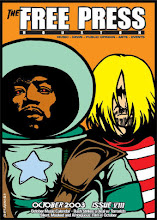Nobel Son

Nobel Son defines ambivalence in a movie. At first you can't believe this film by director Randall Miller merits serious consideration after a grueling thumb amputation opens the film. But as its plot - kidnapping the son of a Nobel Prize winner - gets on its feet the film becomes quite compelling. At least until you've walked out at the end and any attempt to reflect on the logic of the character's actions are met with arched eyebrows.
While there are no story similarities between Nobel Son and Bottle Shock the films share the same director and three of the cast: Alan Rickman, Bill Pullman and Eliza Dushku. In actuality Nobel Son was shot before Bottle Shock. Miller wants to enhance Nobel Son by giving it a trance rave soundtrack. But this isn't Run Lola Run and the intricacies of planning a crime aren't aided and abetted by mixing Crystal Method with the Chemical Brothers.
You see there is, unbeknownst to the son, a bastard child along with subterfuge on the part of a couple of other characters. There's also a clever mall sequence that involves a stake out and one person assembling a Mini Cooper that's been smuggled into the mall in pieces.
While all the actors keep you guessing where this whole shebang is headed, particularly effective are Mary Steenburgen as a forensic investigator and Dushku as an escaped mental patient who reads poetry at the local coffee shop under the moniker City Hall.
Nobel Son will come and go quickly. You will enjoy it while it lasts but I defy you to remember this film a year from now.










